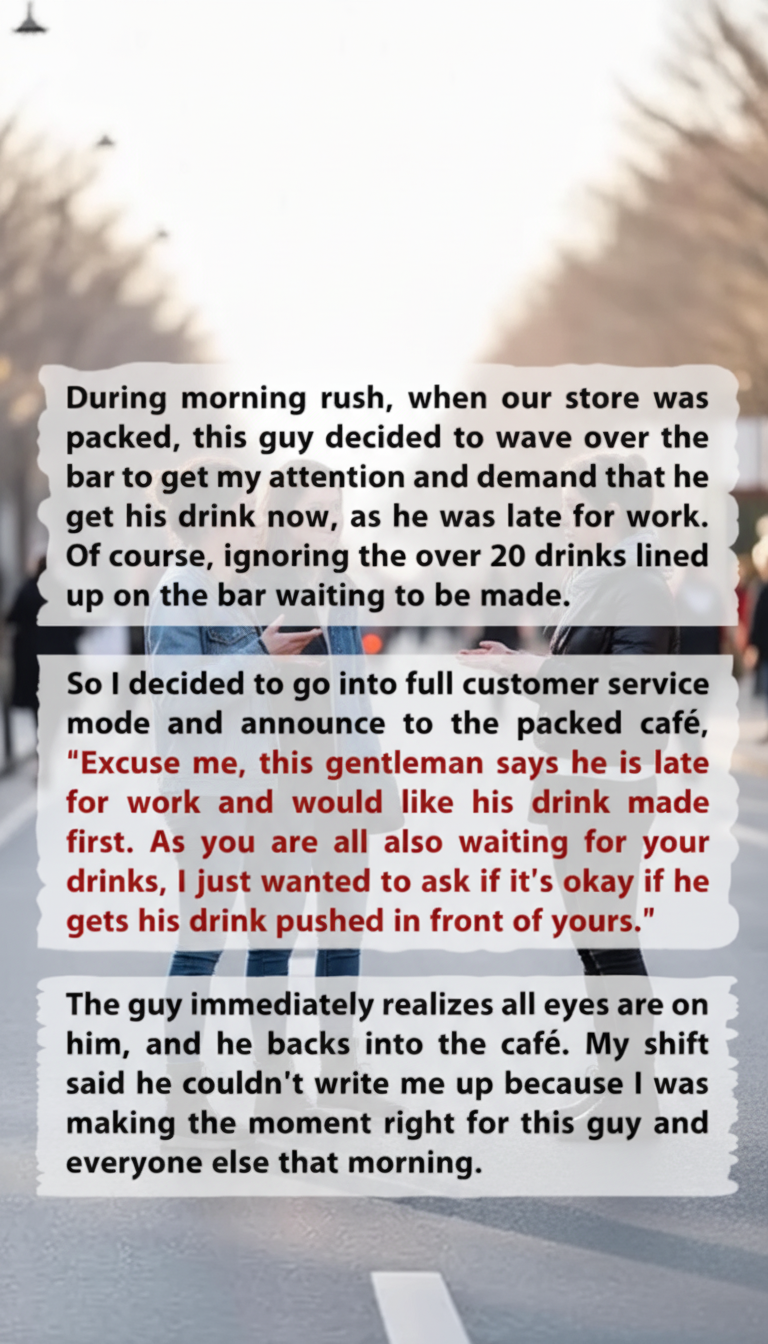It was the morning rush, and our café was packed—orders stacked, steam rising, the usual chaos. I was deep in the zone when a man waved over the bar, demanding his drink immediately because he was late for work. He ignored the 20+ drinks already queued, as if his urgency trumped everyone else’s. I took a breath, smiled, and went into full customer service mode. Loudly, I addressed the room: “Excuse me, this gentleman says he’s late and would like his drink made first. As you’re all waiting, is it okay if he skips ahead?” The café went silent.

All eyes turned to him. You could feel the shift—the weight of attention, the collective judgment. He froze, then slowly backed away from the counter, suddenly aware of how entitled he’d sounded. No one said a word, but the message was clear. I went back to making drinks in order, and the tension dissolved into quiet satisfaction. My shift lead watched the whole thing and later told me he couldn’t write me up—I’d handled it perfectly. I hadn’t shamed him. I’d simply given the room a choice.
Moments like that are tricky. You want to stay professional, but you also want to protect the dignity of everyone waiting patiently. I didn’t raise my voice. I didn’t roll my eyes. I just gave the situation a little air. And it worked. The guy got his drink eventually, and I think he learned something. Maybe next time he’ll wait his turn. Maybe he’ll remember that being late doesn’t make you more important—it just makes you rushed.
I’ve had plenty of difficult customers, but this one stuck with me. Not because of what he said, but because of how the room responded. There’s a quiet power in community, in shared patience. That morning, the café wasn’t just a place for coffee—it was a place where fairness mattered. And I got to be the voice that reminded everyone of that. It felt good. Not petty. Just right.
I didn’t need to scold him. I didn’t need to escalate. I just needed to hold up a mirror. And sometimes, that’s all it takes. A little reflection, a little pause, and the moment corrects itself. I’ve learned that customer service isn’t just about speed—it’s about grace under pressure. And sometimes, it’s about letting the crowd speak for you.
Thirteen years from now, I’ll still remember that shift. The steam, the orders, the man who tried to cut the line. And the way a single sentence turned a packed café into a chorus of quiet justice. Because sometimes, the best way to handle entitlement is with a microphone and a smile.


